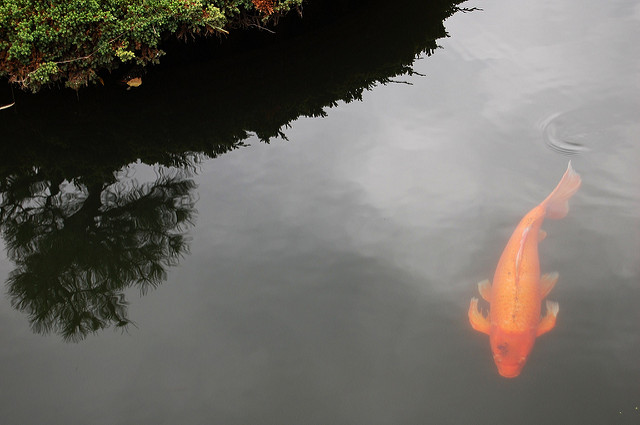Andrew Shearer was Tony Abbott’s national security adviser. In an article published in mid-January co-authored with US analyst Michael Green, he said that ‘senior US officials and military officers are in no doubt both as to the superior capability of the Japanese Soryu class and to the long-term strategic benefits to the United States and the region of an interoperable fleet of Australian and Japanese conventional submarines’. A week later, Greg Sheridan wrote of a ‘strong US preference for the Japanese option’, in the context of Prime Minister Turnbull’s visit to Washington.
A different picture emerges if you talk to anyone close to the Competitive Evaluation Process (CEP) that’s underway to select a design partner from among the competing French, German and Japanese bidders. By all accounts, the Americans are being scrupulously even handed with respect to the three options. So what’s going on?
There’s no paradox. Both statements can be, and I believe are, true at the same time. It’s entirely possible for the US to have a strong preference but nonetheless remain non-committed publicly and perhaps even privately. And there are good reasons for adopting such a position.
From an American perspective, the strategic argument in favour of the Japanese option is simple; a closer relationship between its allies Australia and Japan would manifestly bolster the US position in the region vis-à-vis China. I’m pretty sure that’s where it begins and ends. Arguments about interoperability and supposed difficulties with integrating a US combat system onto a European boat can be safely discounted. Though few would admit it (here’s an exception), the name of the game is to hedge against China’s increasing strategic assertiveness. While capable submarines are useful to that end, they’re not as important to the US as generating solidarity and co-dependence among its allies in Asia. Viewed that way, Australia’s next generation of submarines are most significant as geopolitical totems.
But while the US might have a strong preference, there are also good reasons for it to keep its own council. First, they don’t need to tell us what we already know, and any attempt to pressure us would be inappropriate and counterproductive. Second, by remaining silent they don’t have to bear responsibility if (or when) the project gets into trouble. Remember, they had to bail us out when the Collins stumbled. Finally, they want to avoid creating a security dilemma by reinforcing Beijing’s fears of strategic containment.
The CEP won’t take account of US preferences, or indeed of geopolitics. It will be cost, capability and schedule from start to finish. If geopolitics is to play a role, it’ll be via a political intervention—just as it did back when the Howard government overturned a tender evaluation in favour of a US-sourced replacement combat system for Collins. And don’t think for a minute that the government can simply announce the result and remain silent about what the CEP concluded; the result will quickly leak out.
The Turnbull government will be remiss if they fail to consider the geopolitics of the submarine choice, and they’ll be confronted with uncomfortable issues if they do. Setting aside the difficulty of balancing the technical and financial aspects of the project with geopolitics—which will be hard enough—the geopolitics are fiendish.
If the government picks Japan against the recommendation of the CEP (and, to an extent, even if it accepts a recommendation in favour of Japan), it will face criticism on two fronts. First, from those who are either concerned about a security dilemma or want Australia to forge a more independent strategic role beyond the US alliance. Second, there will be pushback from those who rely upon Chinese patronage for their business or professional livelihood. Yes Virginia, there is a China Lobby.
For those who want to counter rather than accommodate China’s rise, a submarine deal between Australia and Japan would be a welcome turning point in regional geopolitics—an opportunity not to be missed. Apart from strengthening the US position in the region, it would be a (rare) demonstration to the US of allies willing to shoulder risks rather than free-ride. With the US struggling to deal with massive debt, anaemic growth and political dysfunction, it’s in our interest to encourage their continued involvement in our part of the world.
There’s a further geopolitical factor to take into account; the relative strength of our potential long-term strategic relations with Japan on the one hand and with France and Germany on the other. I’m not suggesting for a moment that either Paris or Berlin would sell us out in favour of their growing economic partnerships with China—Beijing will never have that sort of leverage. And we share many important interests with Europe, for example, countering violent extremism and cyber security. But Japan has, and will continue to have, a clear imperative to support us to the absolute limit of their ability. Japan’s commitment to Asian security is existential, Europe’s isn’t. So, whatever the promises of undying fidelity the French and Germans might make, they will never have anything approaching as strong an incentive as the Japanese to support us and our submarines. To quote Lord Palmerston, ‘nations have no permanent friends or allies, they only have permanent interests’.
Sometime later this year, the Turnbull government will pick a design partner for the future submarine. Whether they like it or not, it’ll also be making a seminal strategic call on Australia’s role in Asia. It’s time we started talking about it.


